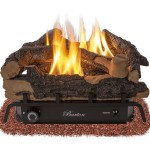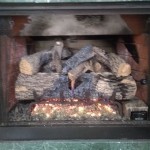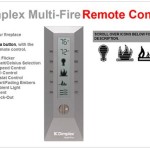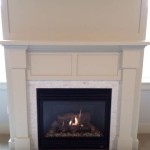Gas Fireplace Stones Rocks: An Essential Guide
Gas fireplaces have become increasingly popular due to their ease of use, convenience, and ability to provide warmth and ambiance. One crucial aspect of gas fireplaces that significantly enhances their aesthetics and functionality is the choice of stones or rocks used as embellishments. These elements not only add visual appeal but also play a vital role in heat distribution and the overall performance of the fireplace.
When selecting gas fireplace stones or rocks, there are several essential factors to consider, including:
1. Visual Appeal
The stones or rocks you choose should complement the overall style of your fireplace and the décor of your room. Consider the color, texture, and shape of the stones to create a cohesive and visually pleasing appearance. For instance, if you have a traditional-style fireplace, you may opt for cobblestones or tumbled stones that exude rustic charm. Alternatively, if you prefer a modern aesthetic, smooth river rocks or glass beads can offer a sleek and contemporary touch.
2. Durability
Gas fireplace stones or rocks are subjected to varying degrees of heat, so it's crucial to choose materials that can withstand these conditions without cracking, crumbling, or emitting harmful gases. Some popular choices include lava rocks, firebricks, and river rocks, known for their durability and heat-resistant qualities. Avoid using materials like limestone or marble, as they may be prone to heat damage.
3. Heat Distribution
The stones or rocks in your gas fireplace play a significant role in heat distribution. Larger stones retain heat for extended periods and release it gradually, providing a consistent source of warmth. Smaller stones, on the other hand, heat up quickly but may cool down faster. The type of material also affects heat distribution; for example, lava rocks are highly porous and release heat more efficiently than denser stones like river rocks.
4. Maintenance
Gas fireplace stones or rocks require minimal maintenance, but occasional cleaning is necessary to keep them looking their best and functioning properly. Use a soft brush or vacuum cleaner to remove dust and debris regularly. Avoid using harsh chemicals or abrasive materials that may damage the stones.
5. Installation
Installing gas fireplace stones or rocks is a straightforward process that can be completed by most homeowners with basic DIY skills. However, it's recommended to consult the manufacturer's instructions or seek professional assistance if you have any uncertainties. Proper installation ensures that the stones or rocks are securely placed and do not pose any safety risks.
By considering these essential aspects, you can choose the ideal gas fireplace stones or rocks to enhance the ambiance, warmth, and overall enjoyment of your living space. From adding visual appeal to improving heat distribution, these elements play a vital role in creating a welcoming and inviting atmosphere.

Fire Pit Glass Everything You Need To Know

Chaska 34 Rock Kozy Heat Fireplaces

Lava Rock Vs Fire Glass Blog Fireplace And Chimney Authority

Manchester Oak Gas Logs Cyprus Air Fireplaces Va Md Dc

We Will Be Updating Our Fireplace To Use Glass Rocks Rather Than Logs Outdoor Gas Firepit That Fire

Gas Stone Rock Kit Fireplaces Usa

River Rock Gas Fireplace Fireplaces

Lava Rock Vs Fire Glass Blog Fireplace And Chimney Authority

Fire Pit Media Lava Rock Glass Woodlanddirect Com

Buy St900 Gas Fireplace Natural Granite Stone Front San Francisco Bay Area Ca The Element
Related Posts








